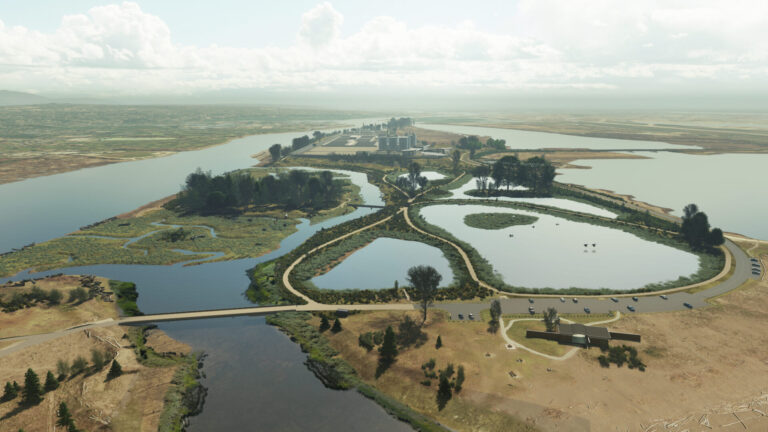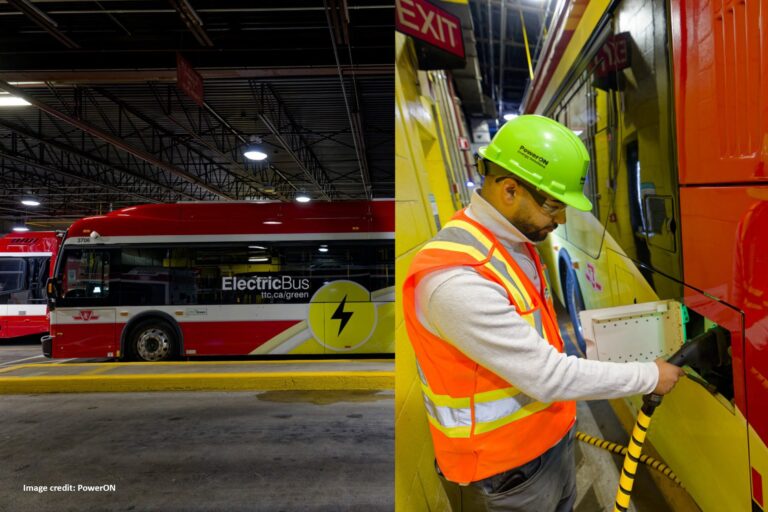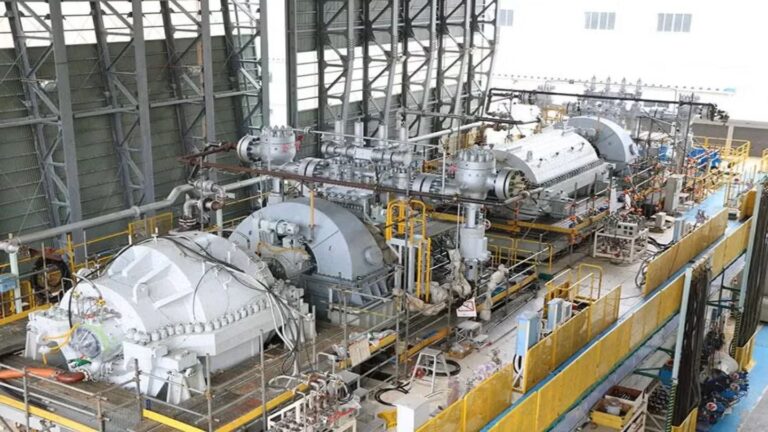According to a recent survey by KPMG LLP, momentum is building for a national energy-agnostic utility corridor as business leaders say it’s time for megaproject infrastructure.
The poll by of 151 energy and natural resources executives found 87 per cent think “it’s time to build a west-to-east pipeline to reduce reliance on moving Canadian oil and gas to the United States.” A similar share said the moment calls for more pipelines and infrastructure from oil and gas regions to diversify energy export markets.
Amid a proliferating trade war with the U.S., 80 per centof Canadian energy and natural resources CEOs are confident they can withstand a sustained tariff war, but they are pressing for government action to eliminate interprovincial trade barriers and commit to building a national infrastructure backbone that will protect the country’s sovereignty and drive economic growth, the survey found.
“This crisis provides Canada with a real opportunity to nation-build – a once-in-a-lifetime chance to strengthen our economy and our sovereignty by taking full control of our abundant energy and natural resources,” said Shane Doig, partner and National Energy and Natural Resources Sector Leader, for KPMG in Canada. “If we are going to build these projects, it’s important that all levels of governments – federal, provincial, municipal, and Indigenous – work together to ensure that much-needed West-East-North infrastructure can be built that brings benefits to all regions of the country.
“The question is, will this crisis be enough to create the willpower to build new infrastructure? If the willpower and commitment are there, then the industry will invest the capital. Getting it done will be a monumental effort but not insurmountable challenge,” he says.
KPMG surveyed 151 energy and natural resource CEOs as part of a broader research initiative in late February to gauge the impact of tariffs on their business operations and how to build a stronger, more resilient Canada. More than half (52 per cent) are based in the Prairie provinces.
Megaprojects are crucial to Canada’s economic development and infrastructure growth, but require meticulous planning, robust governance, and effective stakeholder engagement, says Doug Ewing, a partner in KPMG’s Global Infrastructure Advisory practice who leads the firm’s Major Project Advisory Services.
“Our survey findings show strong support among Canadian business leaders for governments to act with urgency and be bold in nation-building megaprojects, but it will take commitment, creativity, and investment unlike anything previously undertaken,” added Ewing. “Canada needs to future proof itself, think 50 or 100 years into the future, not four.”
“We believe Canada should invest in an ambitious policy and infrastructure agenda to unlock its economic potential, such as a national utility corridor or a dedicated, streamlined pathway for the energy, electricity, decarbonization, transportation, and digital infrastructure needed to power our economy from coast to coast to coast today and into the future,” says Zach Parston, a Partner and the Prairies Leader in KPMG’s Major Project Advisory Services practice. “Pre-approved industrial zones right along the corridor would cut the red tape and speed up approval times to build refineries, mines, or factories, allowing for expansion within Canada and opening up access to Atlantic, Pacific and northern ports and putting a stamp on Arctic sovereignty.”
Key survey highlights:
- 80 per cent of 151 Canadian energy and natural resource leaders say they can withstand a sustained tariff war that lasts beyond one year; 18 per cent said they would face “significant profit losses”; and 2 per cent said they could not survive
- This compares to 67 per cent of 602 Canadian business leaders who said they can withstand a tariff war that lasts more than a year; 30 per cent will face “significant profit losses”; and the remaining 3 per cent said they will go out of business
- 86 per cent believe that Canada should fight U.S. tariffs with retaliatory tariffs (vs. same among all business leaders)
- 90 per cent said eliminating interprovincial barriers is vital to the survival of their business (vs. 84 per cent among all business leaders)
- 42 per cent called it “extremely important – it would save their company” (vs. 34 per cent among all business leaders)
- 48 per cent said “very important – it opens up another market” for them (vs. 50 per cent among all business leaders)
- The remaining 9 per cent said it was “somewhat important” and 2 per cent said it was not important (vs. 12 per cent and 4 per cent among all respondents, respectively)
- 79 per cent want to see interprovincial trade barriers eliminated as quickly as possible (vs. 85 per cent among all business leaders)
- 87 per cent believe it’s time for Canada to build West to East pipelines to reduce reliance on moving Canadian oil and gas to the U.S. and then to Eastern Canada (compared to 86 per cent among all business leaders)
- 83 per cent said it’s time for increased pipelines and infrastructure from oil and gas-producing regions in the West and East coasts for export to non-U.S. markets to diversify energy export markets (compared to 86 per cent among all business leaders)
- This jumps to 90 per cent among oil and gas business leaders and 93 per cent among renewable energy executives
Featured image: (Getty Images)











